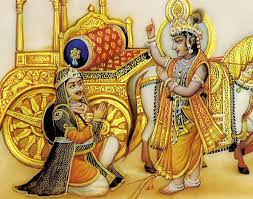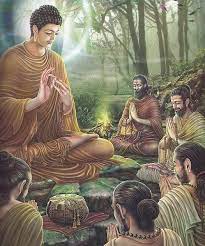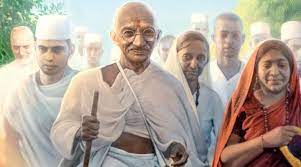
Understanding the concept of dharma in Hinduism
Dharma is a central concept in Hinduism, which refers to the ethical and moral principles that govern human behavior. The term dharma is derived from the Sanskrit word "dhar," which means "to hold or support." Dharma is considered to be one of the three main goals of human life, along with artha (material wealth) and kama (pleasure).

In this blog, we will explore the concept of dharma in Hinduism in detail, including its meaning, significance, and application in everyday life.
Meaning of Dharma:
Dharma can be understood as a set of ethical and moral principles that guide human behaviour. It encompasses a wide range of values, including truthfulness, compassion, non-violence, honesty, and self-control. Dharma is also closely linked to the concept of karma, which suggests that one's actions have consequences, both in this life and the next.

Dharma is often described as a cosmic law that governs the universe. It is believed to be an inherent part of the natural order and is expressed in the rhythms of nature, such as the changing of seasons and the movement of the stars.
Significance of Dharma:
Dharma plays a crucial role in Hinduism, as it provides a framework for ethical and moral behaviour. It is seen as a way to maintain order and harmony in society, and it is believed that adhering to dharma brings one closer to the ultimate goal of moksha (liberation from the cycle of birth and death).

Dharma is also closely linked to the caste system in Hinduism, which is a social hierarchy based on birth. Each caste has its own dharma, which is based on the duties and responsibilities associated with that caste. For example, the dharma of the Brahmin caste (priestly class) is to study and teach the scriptures, while the dharma of the Kshatriya caste (warrior class) is to protect society.
Application of Dharma in Everyday Life:
Dharma has practical applications in everyday life, as it provides a set of guidelines for ethical and moral behavior. These guidelines are based on the principles of non-violence, truthfulness, honesty, and self-control.

For example, dharma dictates that one should not harm others or engage in deceitful behavior. It also encourages individuals to live a life of moderation and to avoid excessive materialism and attachment to worldly possessions.
Dharma also plays a role in the decision-making process, as it provides a framework for ethical decision-making. When faced with a difficult decision, one can refer to dharma to guide their actions and ensure that they are acting in a way that is ethical and moral.
Criticism of Dharma:
Despite its importance in Hinduism, the concept of dharma has also faced criticism from some quarters. Critics have argued that dharma can be used to justify social inequalities and discrimination, such as the caste system.

Others have argued that dharma can be overly rigid and inflexible, and that it does not allow for individual freedom or autonomy. Some have also criticized the emphasis on duty and obligation over personal choice and autonomy.
Conclusion:
Dharma is a complex and multifaceted concept in Hinduism, which encompasses a wide range of ethical and moral principles. It is closely linked to the concept of karma and is seen as a way to maintain order and harmony in society.
Dharma has practical applications in everyday life, as it provides a set of guidelines for ethical and moral behavior. However, it has also faced criticism for its role in maintaining social inequalities and for its perceived lack of flexibility and individual freedom.
Overall, dharma remains a central concept in Hinduism, and its principles continue to guide the behavior and decision-making of millions of people around the world.
Author
Darshita Nautiyal
(The images used in this podcast are not owned by Anime Devta, they are just to help the readers)

